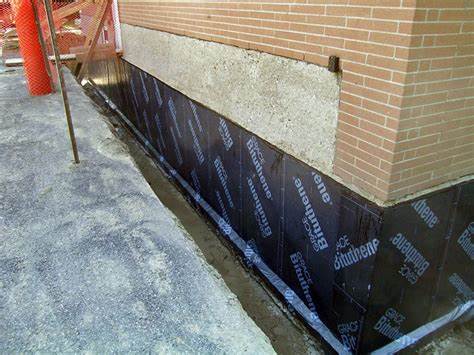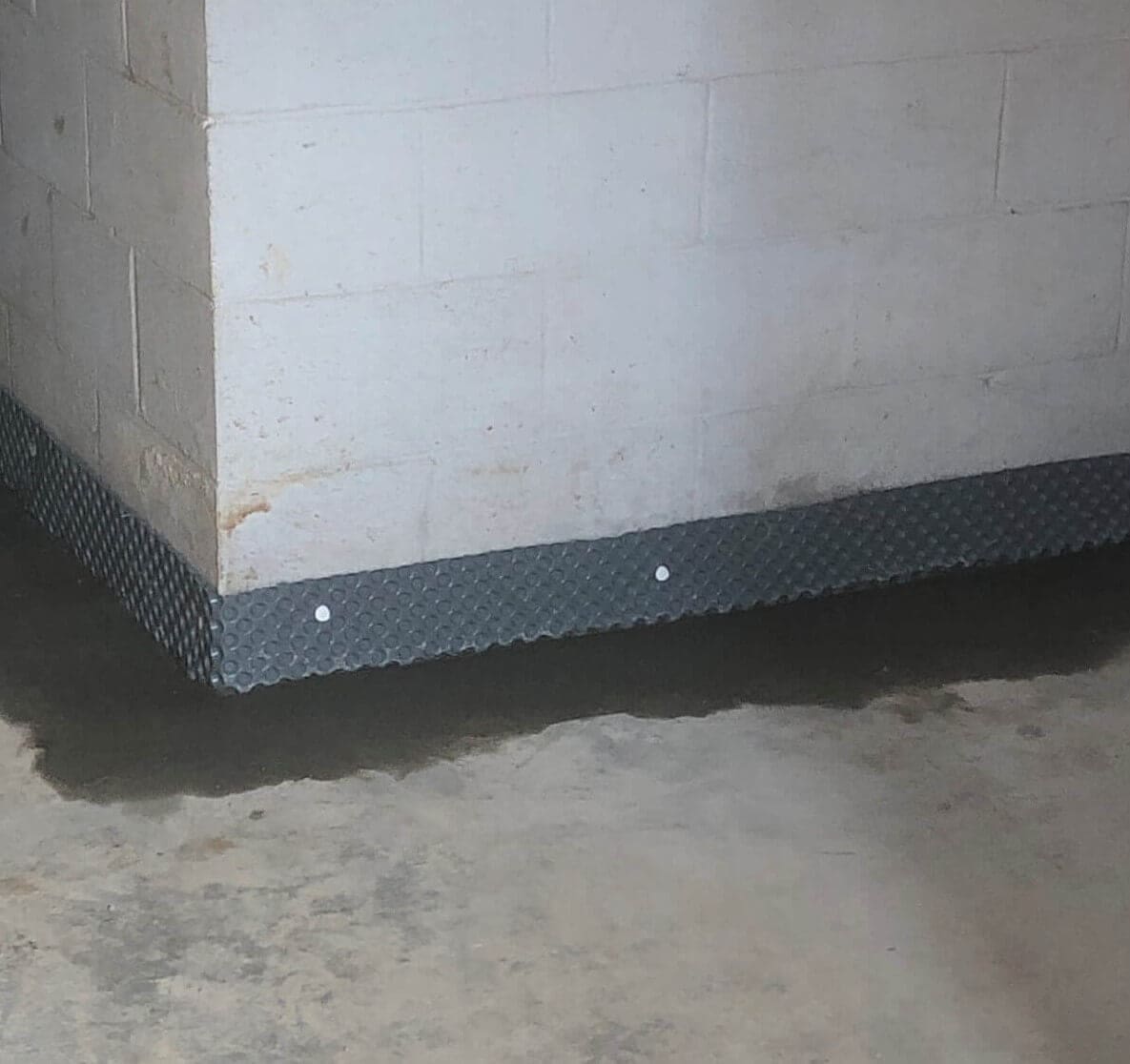Checking Out the Various Approaches of Cellar Waterproofing and Their Benefits
Cellar waterproofing is crucial for preserving a dry and steady setting. Numerous methods exist, each with distinct advantages. Interior sealants secure versus dampness intrusion, while exterior systems deal with drain concerns. Sump pumps and French drains handle water properly, and dehumidifiers control humidity degrees. Understanding these alternatives can aid house owners make informed decisions. The ideal solution commonly depends on certain circumstances and requirements. What factors should one take into consideration when picking the most effective approach?
Interior Sealants: A Reliable Obstacle Versus Wetness
Interior sealers act as an essential line of protection versus dampness breach in cellars. These products are designed to develop a water-proof obstacle on floorings and wall surfaces, properly stopping water from leaking in. Offered in different types, consisting of sealants, paints, and coatings, they can fill cracks and pores in concrete, guaranteeing a more safe and secure environment.The application process generally involves cleansing the surfaces to remove dust and particles, complied with by the careful application of the sealer. When cured, these items improve the longevity of the cellar while minimizing humidity levels, which can bring about mold growth and architectural damage.Moreover, indoor sealers are frequently easy to use and can be a cost-effective remedy for house owners seeking to reduce dampness problems. By giving a trusted layer of security, they play a crucial role in safeguarding the cellar area, protecting both its honesty and functionality.
Outside Waterproofing Solutions: Safeguarding Your Foundation
When property owners seek to shield their structures from water damage, exterior waterproofing systems use a durable solution. These systems generally include applying water-proof membranes and drainage systems to the exterior walls of a basement. By creating a barrier versus groundwater, they efficiently protect against wetness from passing through the foundation (Water Solutions).One significant benefit of exterior waterproofing is its ability to deal with the source of water breach before it gets to the inside. This positive approach not just safeguards architectural stability but additionally improves the longevity of the home.Moreover, outside systems can boost the general drainage around the foundation, lowering hydrostatic stress. This reduces the opportunity of fractures and heaving that can result from water buildup. Therefore, property owners can enjoy a completely dry, steady cellar atmosphere, considerably boosting residential or commercial property worth and comfort. Ultimately, outside waterproofing systems are an essential financial investment in keeping a healthy and balanced home structure
Sump Pumps: Handling Water Build-up Efficiently
Sump pumps play an essential duty in handling water buildup in cellars, providing a reliable service for homes susceptible to flooding or excess dampness. These gadgets are set up in sump pits, generally situated at the most affordable point of a cellar, where they collect water that leaks in from the bordering dirt. When the water level increases, the sump pump activates, effectively draining the excess water to a designated drain area, consequently avoiding possible damage to the structure and interior spaces.There are 2 primary kinds of sump pumps: submersible and stand. Submersible pumps are mounted underwater, making them much less visible and typically quieter, while pedestal pumps are situated over the sump pit and are less complicated to maintain. By effectively taking care of water accumulation, sump pumps not just guard against architectural damage yet likewise contribute to a much healthier living atmosphere by decreasing moisture degrees and avoiding mold development.
French Drainpipes: Redirecting Water Away From Your Home

Dehumidifiers: Decreasing Humidity Degrees for a Drier Environment
Cellar waterproofing includes various methods, and dehumidifiers play a substantial function in keeping a completely dry setting. By efficiently minimizing humidity levels, dehumidifiers assist stop dampness buildup, which can bring about mold and mildew growth, structural damage, and undesirable smells. These gadgets work by extracting excess dampness from the air, developing a healthier and much more comfortable space.In addition to boosting air top quality, dehumidifiers can boost the performance of various other waterproofing techniques, such as securing and water drainage systems. They assist preserve perfect humidity degrees, typically between 30% and 50%, which is crucial for avoiding condensation on walls and floors.Moreover, modern dehumidifiers are energy-efficient and come with features like programmable setups and automatic shut-off, making them user-friendly. Overall, incorporating a dehumidifier right into cellar waterproofing plans provides a necessary layer of security versus moisture-related concerns, therefore protecting the home's integrity.
Often Asked Inquiries

Just How Long Do Waterproofing Solutions Usually Last?
Waterproofing options normally last between 5 to 20 years, depending on the approach made use of, high quality of materials, and environmental problems. Routine upkeep and evaluations can help expand their efficiency and overall life-span.
Can I Water Resistant My Basement Myself?
The individual taken into consideration whether to water-proof the basement individually. They uncovered that while DIY alternatives exist, understanding of methods and materials is essential to assure efficiency, and professional aid might check over here offer better lasting results.
What Are the Signs of Cellar Wetness Issues?
Signs of cellar wetness issues consist of noticeable water discolorations on wall surfaces, moldy odors, peeling paint, mold development, and dampness on floors. High humidity levels may additionally suggest underlying dampness problems requiring attention to avoid additional damages.
Just How Much Does Basement Waterproofing Expense?
The expense of basement waterproofing differs commonly, typically varying from $1,500 to $5,000. Elements affecting expenditures include the extent of dampness problems, the selected technique, and the geographical place of the building.
Will Waterproofing Boost My Home's Worth?
The concern of whether waterproofing boosts a home's value commonly arises among home owners. Typically, effective waterproofing can improve building appeal, alleviate damage dangers, and possibly lead to higher resale rates, relying on the local realty market. By creating an obstacle versus groundwater, they efficiently protect against wetness from passing through the foundation.One significant advantage of exterior waterproofing is its ability to resolve the resource of water intrusion prior to it reaches the interior. Sump pumps play a crucial function in managing water build-up in cellars, offering an efficient remedy for homes prone to flooding or excess wetness. When the water degree increases, the sump pump triggers, successfully pumping out the excess water to a designated drain area, consequently protecting against potential damage to the structure and you could try this out indoor spaces.There are 2 major kinds of sump pumps: submersible and pedestal. Sump Pump Installation And Replacement. Visit This Link By routing groundwater and surface water away from the foundation, French drains pipes aid stop water build-up in cellars and creep rooms, reducing the threat of structural damage and mold and mildew growth.Installation commonly happens around the perimeter of the home, ensuring that water is successfully drawn away. Signs of cellar wetness issues consist of visible water stains on wall surfaces, moldy odors, peeling off paint, mold development, and moisture on floors